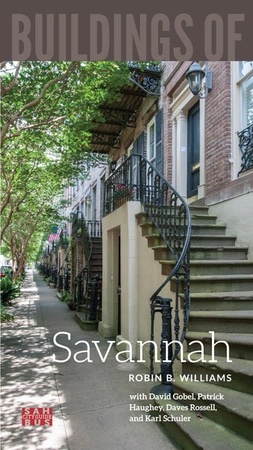
First African Baptist claims to be the nation’s oldest African American Baptist congregation (originally called First Colored Baptist), dating its founding to 1773 under the Reverend George Leile. The congregation’s first building was erected on the site of the current First Bryan Baptist Church (5.5) in 1794. Following extraordinary church growth, a doctrinal split sent more than 2,000 congregants looking for another facility in 1832. In that year they purchased a building on the present site from the white Baptist church, which had recently relocated to its present site on Chippewa Square. Incorporating the 1832 pipe organ from the congregation’s previous home, the current church was built in 1859 by members of the congregation, many of whom were enslaved laborers who earned time off from their plantation duties to work here. Following another revival in 1888, the building was expanded by 28 feet to the west, and a pulpit, baptismal pool, and stained glass windows were added, as was a multistage, 125-foot wooden steeple (which was destroyed just five years later in a hurricane). The building, a simple box (35 feet tall) with a gable roof, is made of Savannah Grey brick, which remained exposed until covered with stucco in the mid-twentieth century. The sanctuary is raised on a half basement and is entered via two doors flanking the central tower. Below the basement level is a 4-foot-high crawl space that is said to have been used to hide escaping slaves as part of the Underground Railroad. Holes drilled into the floorboards in geometric patterns—described in church literature as a Congolese Cosmogram—provided ventilation for the crawl space. The ministerial platform in the main auditorium is framed by a kind of chancel arch flanked by paired Corinthian columns, and a wraparound gallery is supported by iron columns with gilded capitals.

